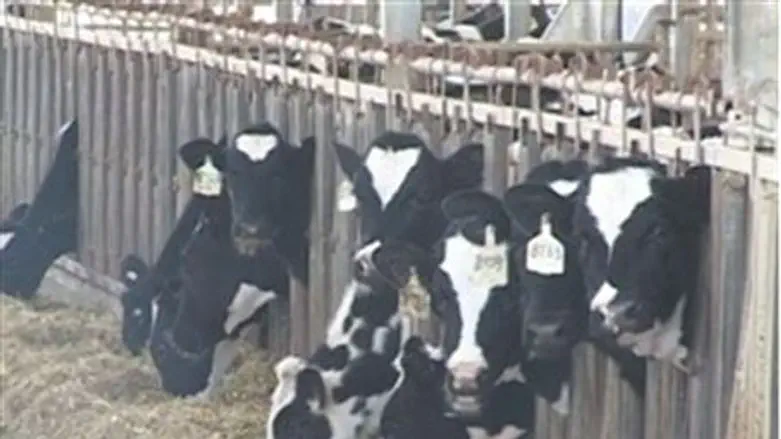
A group of hareidi Jews on Monday protested in Jerusalem for “animal rights” - specifically, for the right not to be abused – a result of a recent television report showing workers at a major Israeli slaughterhouse abusing and acting cruelly to cows set to be slaughtered for meat.
The report, on Channel Two's Kolbotek consumer affairs magazine, showed workers at Tnuva's slaughterhouse mistreating animals, including by using electric shockers to subdue them, hitting them over the head with blunt objects, and dragging animals. The meat produced from the animals' slaughter is marketed under Tnuva's premium “Adom Adom” brand name.
The report garnered calls by Knesset members and Israeli animal rights group for an investigation of Tnuva. Israeli animal rights activists transferred the Kolbotek video to Australian groups, where the government has called for a ban of exports of Australian cattle to Israel.
Tnuva is Israel's largest dairy cooperative, but also has a significant business in chicken, beef, egg, and mutton production. As a result of the report, Tnuva said that it had conducted a major overhaul of its procedures and facilities to prevent future incidents of cruelty to animals.
The hareidi groups cited Jewish law, which bans cruelty to animals. “Preventing such cruelty is a Jewish commandment, no less than any other,” said a spokesperson for the protesters. “There can be no compromises on this law, as with any other commandment. With this protest, we are following in the way of our fathers, who observed this commandment as well. It would be easy to ignore the problem, and to direct our efforts to the issues that are generally identified as 'Hareidi' issues. But we are doing this because it is necessary, in order to end this phenomenon.”
Many Israelis who saw the report have demanded that the Chief Rabbinate investigate the kashrut certification process at the slaughterhouse. Animals that are hit over the head or shocked into submission are generally considered unkosher, and consumers were demanding that the Rabbinate investigate whether any of these animals were slaughtered and labeled as kosher.